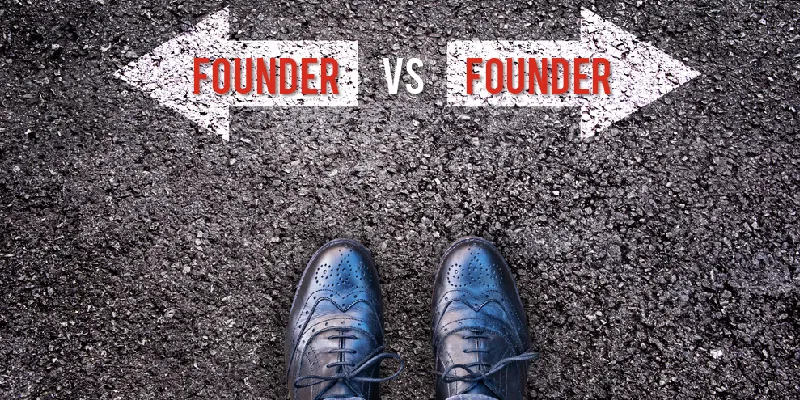Founder vs Founder: Democracy isn’t the solution!
In 2014,CB Insights parsed essays written by entrepreneurs on the major reasons for startups failing. The second-most-likely reason for the failure of startups, as essayed by entrepreneurs themselves, was founder/team-related issues.
Founder-related issues can range from the inability of some of founders to stay the courseor perform, to downright dishonesty. While issues of outright fraud/theft are easy to deal with when they happen, it is much harder to deal with performance/contribution and issues related to team dynamics.

In one company that I was closely associated with, two out of the three founders approached us within a month of our funding them and said they wanted to quit. We managed to convince both of them to stay and build the company. This scenario was repeated a few more times over the next three years, and again, one of the founders told us he wanted to quit. His reason for wanting to leave was that he felt the company didn’t have a role that suited his stature of being a “founder” and that he would have learnt a lot more at a large MNC in three years than he had at the startup he had co-founded. We were fortunate in that we were able to negotiate favourable terms of exit without disrupting operations or impacting the morale of the leadership team. The company went to build great value for all its stakeholders.
As you think of your startup and look for co-founders, it is important to have an agreement, right upfront, whichtakes care of all possible scenarios. Be sure to consider the following factors while drafting such as an agreement.
- Roles and responsibilities
The interse agreement amongst founders should identify the initial roles and responsibilities of each founder. This can be based on prior experience of the founders, and if there isn’t a large body of experience, then it can be based on the interests of the founders. (The assumption here is that if a co-founder is interested in a particular field then s/he will develop the requisite skills.) The agreement should have provisions for changing roles and responsibilities,either because a co-founder doesn’t perform, or the company pivots into a new model.
- Decision-making
The buck can only stop at one desk and not multiple desks. And every co-founder cannot and need not be a CEO or a co-CEO. For a startup, decision-making by a committee and/or a majority vote is too time consuming and could well sound the death knell or result in suboptimal decisions. A final and single decision-maker will provide clarity to all stakeholders, and hence, it is important to identify a single leader in the company. The change in leader should be based on performance and never by rotation. Ofcourse, the major decisions can and should be deliberated by all co-founders (whether or not to change the line of business, deciding on an investor, valuation, etc.) but that does not mean that all decisions need to be made by consensus. Democracy works in collaboration and discussions but not in decision-making.
- Equity split and vesting:
A survey of startups shows that equity is often equally split amongst the founders. This is especially true if the founding team has similar experience and background. Equity in a startup is meant for building future value, and it is highly unlikely that all team members will contribute in a similar manner and/or meet similar performance standards. And if their background and experience is dissimilar, all co-founders need not have an equal share of the pie. As a thumb rule, the lead co-founder/CEO will have higher equity than other co-founders. These conversations can be unpleasant, but these discussions need to take place upfront to avoid unpleasantness at a later date. Any discord or unpleasantness amongst the founders can only lead to suboptimal performance by the company. Apart from the equity split, vesting is an equally critical component, and founders should follow a market-based vesting schedule and one that is somewhat similar to what they expect from senior leadership. If a co-founder leaves the journey mid-way, the unvested shares can be used to find a substitute.
The founder/team relationship is like a marriage – we all hope that it will last forever or till anexit happens, but like real marriages, there can be many surprises. And hence it is better to have a ‘pre-nuptial’ agreement upfront instead of regretting the lack of one later on.











